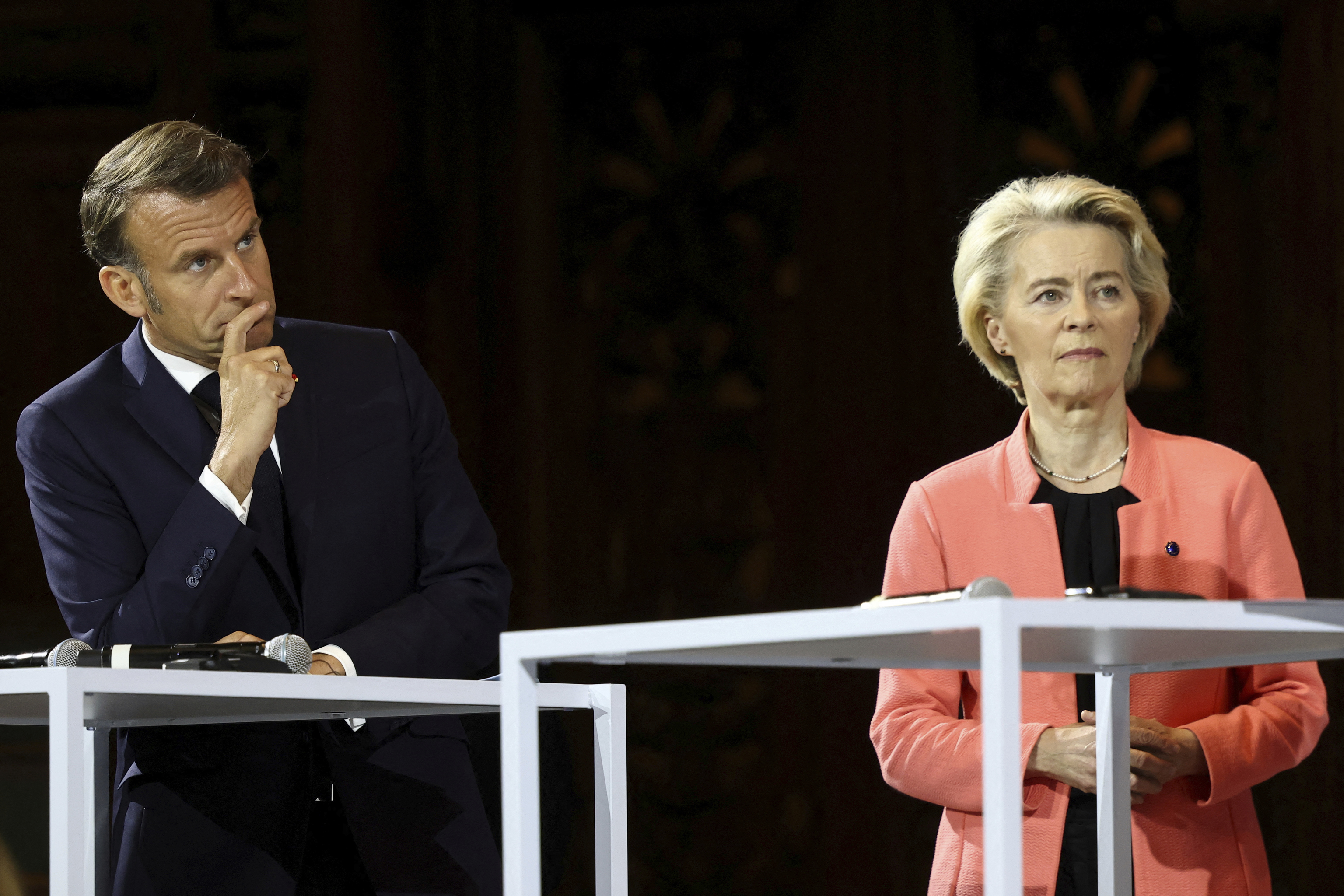From the iconic amphitheater of the Sorbonne, French President Emmanuel Macron and European Commission President Ursula Von der Leyen launched on Monday a call to American scientists, pressured or threatened by the Trump Administration, to make the leap to the old continent in the name of "academic freedom."
Choose Europe for Science is the name of the program promoted by the two leaders in response to the request made by 13 EU countries (including Spain) to encourage the arrival of "academic talents" from across the Atlantic, in response to the attacks on universities and the anti-science climate created by the Trump Administration.
The two leaders made efforts to give the event maximum academic prestige, with the participation of experts in health, artificial intelligence, and climate change on both sides of the Atlantic. However, the event had a clear political intention in the context of the "European rearmament" promoted by President Macron.
Emmanuel Macron was direct in his criticism of Trump; "No one could imagine that this great democracy of the world would make such a mistake." The French President stated that Trump's science policy is "a diktat that prohibits researching this and that" and invited scientists who feel "threatened" to make the move to Europe.
"The role of science is being questioned today," added the President of the European Commission in a veiled reference to the Trump Administration. "Investment in basic, free, and open research is being questioned. What a great error in judgment!"
"Science is the key to our future here in Europe," added Von der Leyen, who announced an investment of 500 million euros to attract scientists. "In the medium and long term, we aim to achieve the goal of 3% of GDP for research and development investment by 2030." The President of the European Commission also expressed her desire to "enshrine the freedom of scientific research in legislation through a new legislative act on the European Research Area."
France took the lead in April with the launch of the Choose France program, a platform dedicated to international research. The National Center for Scientific Research (CNRS) has launched a new program to attract foreign scientists, and the Aix-Marseille University introduced its Safe Haven for Science program in March. The first researchers will arrive in June.
French Minister of Research, Philippe Baptiste, strongly criticized the Trump Administration, especially after the incident involving the French scientist attending a conference in Houston who was banned and expelled from the country for criticizing Donald Trump in messages found on his mobile phone and computer (the official American explanation was that the messages contained sensitive information that could compromise security).
"Many well-known researchers are considering their future in the United States", Baptiste wrote in a letter to French universities a few weeks ago. His statements have been criticized by some as "political opportunism," in light of budget cuts in research and innovation in France.
"At a time when academic freedom is threatened, Europe is an attractive continent for science and research," added a spokesperson for the Elysée. "As the world goes through a period of instability and fragmentation, France and Europe choose science, openness, and cooperation to strengthen our independence."
